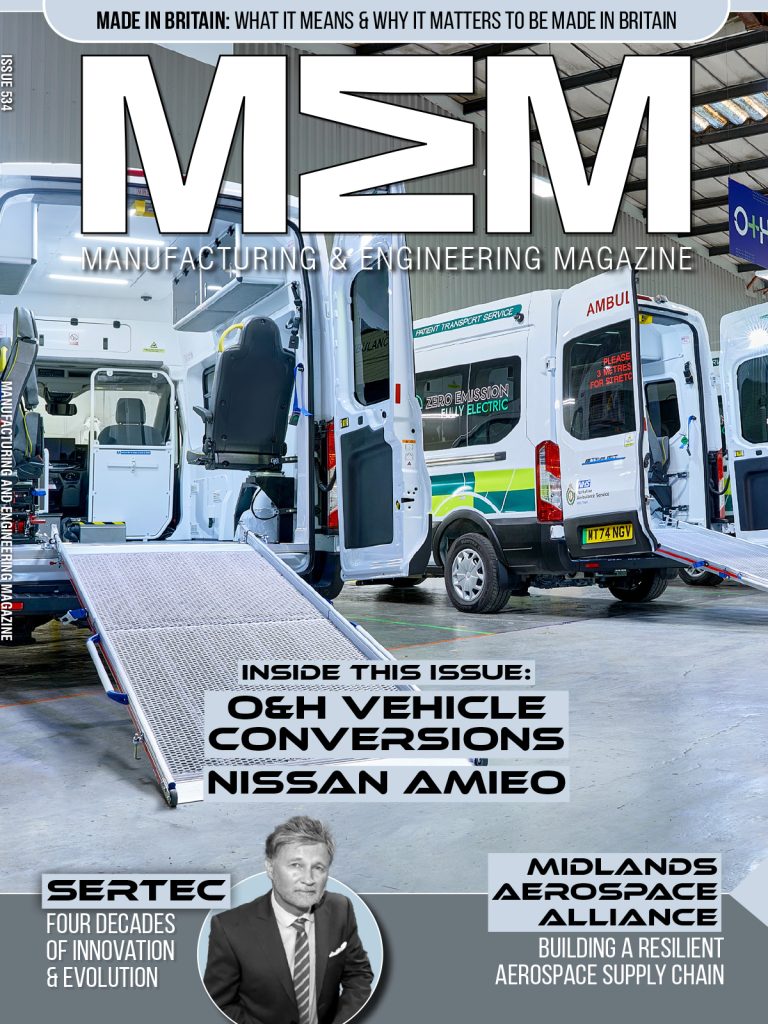Industry 4.0: Why you need to invest in it to increase growth : Manufacturers in the UK finished the year positively, with the strongest three months for growth since 2014. Markit/Cips UK Manufacturing Purchasing Managers’ Index figures showed that activity and new orders expanded throughout the past 17 months in the UK, with firms increasing production in response to new orders and the launch of new product lines.
However, this is not the time for your manufacturing business to rest on its laurels. Investment in capacity and machinery is needed to take advantage of expected growth, with many leading manufacturers fast becoming “Industry 4.0” ready.
What is Industry 4.0 and why does it matter to you?
Industrial revolutions are huge, significant events and observers believe we’ve had four of them. The first was initiated by the introduction of the commercial steam engine and the birth of the textile industry. The second was sparked by electricity and mass production. And the third was triggered by the computer after World War 2.
Professor Klaus Schwab, founder and executive chairman of the World Economic Forum, believes we’re well under way with the fourth industrial revolution.
Also known as Industry 4.0, it refers to major innovations in technology that are coming into maturity at the same time, embedded by companies around the world, integrating the virtual and physical worlds to bring forth powerful new ways of working. Examples of this technology include:
Internet of Things
The fusion of physical objects such as software, sensors and electronic items with internet and machine-enabled data collection and transfer. IoT allows real-time communication, initiating physical systems and giving rise to smart cities.
It offers you the opportunity to build digitised and connected supply chains – completely integrated ecosystems that are fully transparent to the contributing marketing, product development, manufacturing, and distribution departments.
Big data and advanced analytics
With the Internet of Things comes a huge amount of data – and the way your business reads and analyses that information is important. In manufacturing, the availability of data from product development, production and testing can add new dimensions to the way you manufacture goods, offering better innovation, marketing and decision making.
Robotics and automation
Robots are already used extensively in the manufacturing world – mechanical arms on assembly arms for example. Industry 4.0 could see the contribution of robots massively increasing, and consider the possibility of building “smart factories” where robots take ownership of manufacturing and bring goods to customers with limited human input, due to computing and communication systems linked with physical systems.
Simulations, 3D printing and augmented reality
Already commonplace today, goods can be virtually modelled and tested, saving time and reducing the materials, efforts and money spent. Through 3D printing, we can see the creation of customised, complex and lightweight designs at remarkable speeds, while augmented reality sees a future where employees can be trained on the job far more effectively than with paper or monitors.
Why you should be investing in industry 4.0?
Industry 4.0 isn’t a buzzword. In fact, businesses are already putting down investment – and organisations that aren’t are at risk of being left behind.
PwC claims Industry 4.0 will revolutionise industrial production, with businesses generating on average 3.6% per annum cost reductions until 2021, driven by internal improvements and working more closely across value chains.
They also expect to generate 2.9% p.a. in increased revenues by digitising products and services, as well as developing new digital service offerings. Meanwhile, 33% of industrial companies say they’ve already achieved advanced levels of digitisation, and 72% of companies expect to achieve advanced levels of digitisation by 2020.
Increased competition is leading a focus on servicing customers, which requires your manufacturing business to explore new ways to deliver products and services – the change in processes and business models that Industry 4.0 is all about.
Nick Castellina, research group director at Aberdeen, says: “Products may need to be more customisable, requiring a change in the ways production and delivery are handled. Many of these changes would be impossible in existing business systems. Therefore, manufacturers have prioritised modernising business systems as their second goal for the near future.”
Manufacturing & Engineering Magazine | The Home of Manufacturing Industry News
















